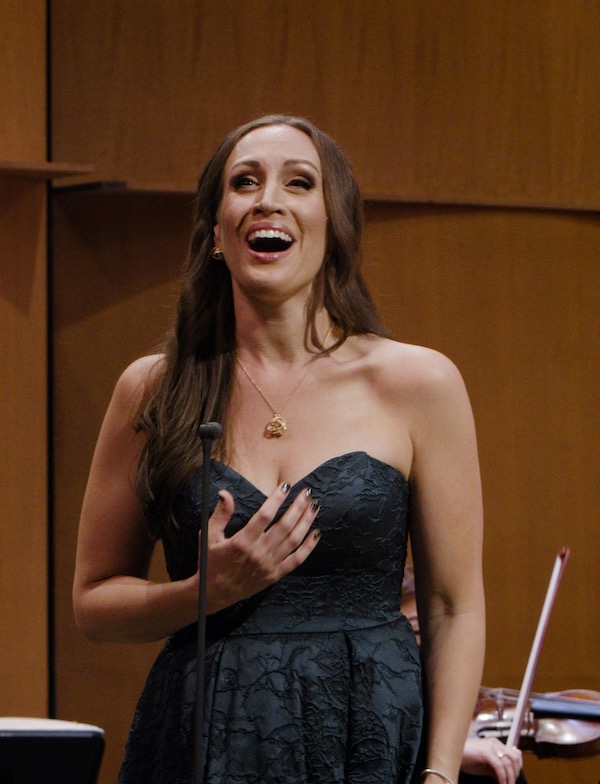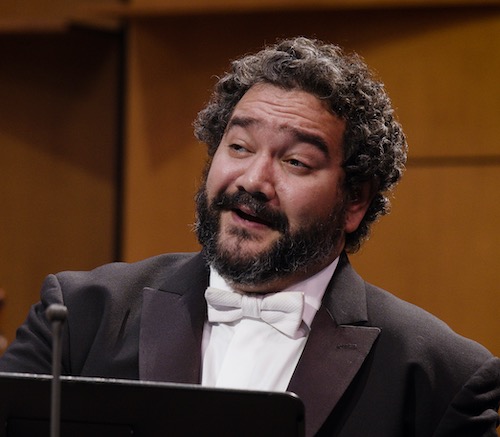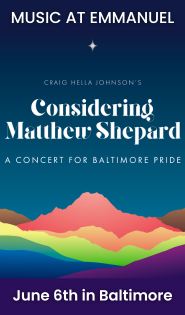Superb voices hit the heights in Washington Concert Opera’s pared-down “Puritani”

Brenda Rae sings the role of Elvira in WCO’s streamed concert performance of Bellini’s “I Puritani.” Photo: Arts Laureate
Among the performing arts, opera sustained the worst damage from the coronavirus pandemic. Even as other ensembles and presenters return to the platform, opera companies are still bringing up the rear of the reopening.
Washington Concert Opera lost a season and a half to the closures, but it has found a virtual solution by streaming highlights from Bellini’s I Puritani, recorded on the same day of a cancelled live performance last month.
At ninety minutes, the selection of arias and ensembles represented a little over half of the composer’s final opera, performed in stage order so that the convoluted story remained as clear as possible. The minor roles and chorus parts were all excised, leaving only the four principal characters, sung by a superlative cast on the stage of Alexandria’s Rachel M. Schlesinger Concert Hall.
Brenda Rae’s soprano sparkled in the bel canto fireworks given to Elvira, the role created for Giulia Grisi. High notes soared effortlessly up to a stellar high D at the end of the Act I showpiece, “Son vergin vezzosa,” and agile passages sounded with clarity. In “Qui la voce sua soave,” the Act II mad scene, she deployed an amazing messa di voce, with the decrescendo expertly controlled. She added incandescent rocket runs in the cabaletta “Vien, diletto, è in ciel la luna,” which concluded on a sparkling high E-flat.

René Barbera is Arturo in WCO’s “I Puritani.” Photo: Arts Laureate
As Arturo, tenor René Barbera even outshone Rae in the sweetness of his tone, purring with a dulcet high range in “Son salvo,” the duet from the opening of Act III. He and Rae made a lovely duo in the ensuing “Finì… me lassa!” duet, including a rare perfect unison on the high D. Bellini wrote the role for Giovanni Battista Rubini, a singer with an extraordinary top range. Barbera hit all these high points, beginning with a powerful D-flat in the Act I trio, “A te, o cara.”
Of course, the question with any performance of this opera is the highest of high notes, the high F Bellini gave Arturo in the Act III ensemble “Credeasi misera.” Warming up with another D-flat, Barbera went for that high F with bravery and solid technique. Holding nothing back and not lightening into falsetto, he produced a beautifully tuned howl of outrage.
The baritone of Javier Arrey sounded with admirable bite and pithiness in his Act I aria “Ah, per sempre io ti perdei,” with the snarl and volume needed for the opera’s villain. He soared up to an on-point A-flat at the end of “Suoni la tromba,” the Act II Finale, capping a remarkable upper range. As Giorgio, bass-baritone Musa Ngqungwana had some trouble competing with Arrey in the heights of that finale, and his low end got a little scratchy. His Act II aria “Cinta di fiori” revealed a more polished tone and expressive phrasing.
Antony Walker led a chamber-sized orchestra, working from a reduction he created with WCO’s librarian, Marcia Farabee. The orchestral sound was on the light side, with one each of the paired woodwinds called for in the score, only one horn and one trumpet of the nine brass, and just eleven string players, plus harp and timpani. Fine solo work came from Amy Horn on the French horn and Eric Sabatino on the harp.
Walker excelled in balancing his small but valiant forces, and the recorded sound flattered the voices nicely, without feeling artificial. Throughout the evening and especially in the concluding excerpt, the Act III Finale “Ah! Sento, o mio bel angelo,” WCO’s music director served as a vital link between the singers and the socially distanced instrumentalists, creating a suave approximation of the full experience of a bel canto opera. This will have to tide us over until WCO’s next season, to be announced over the summer.
This free performance streams through July 26. concertopera.org

